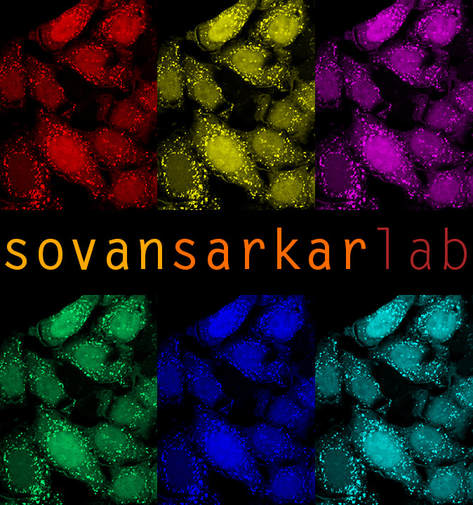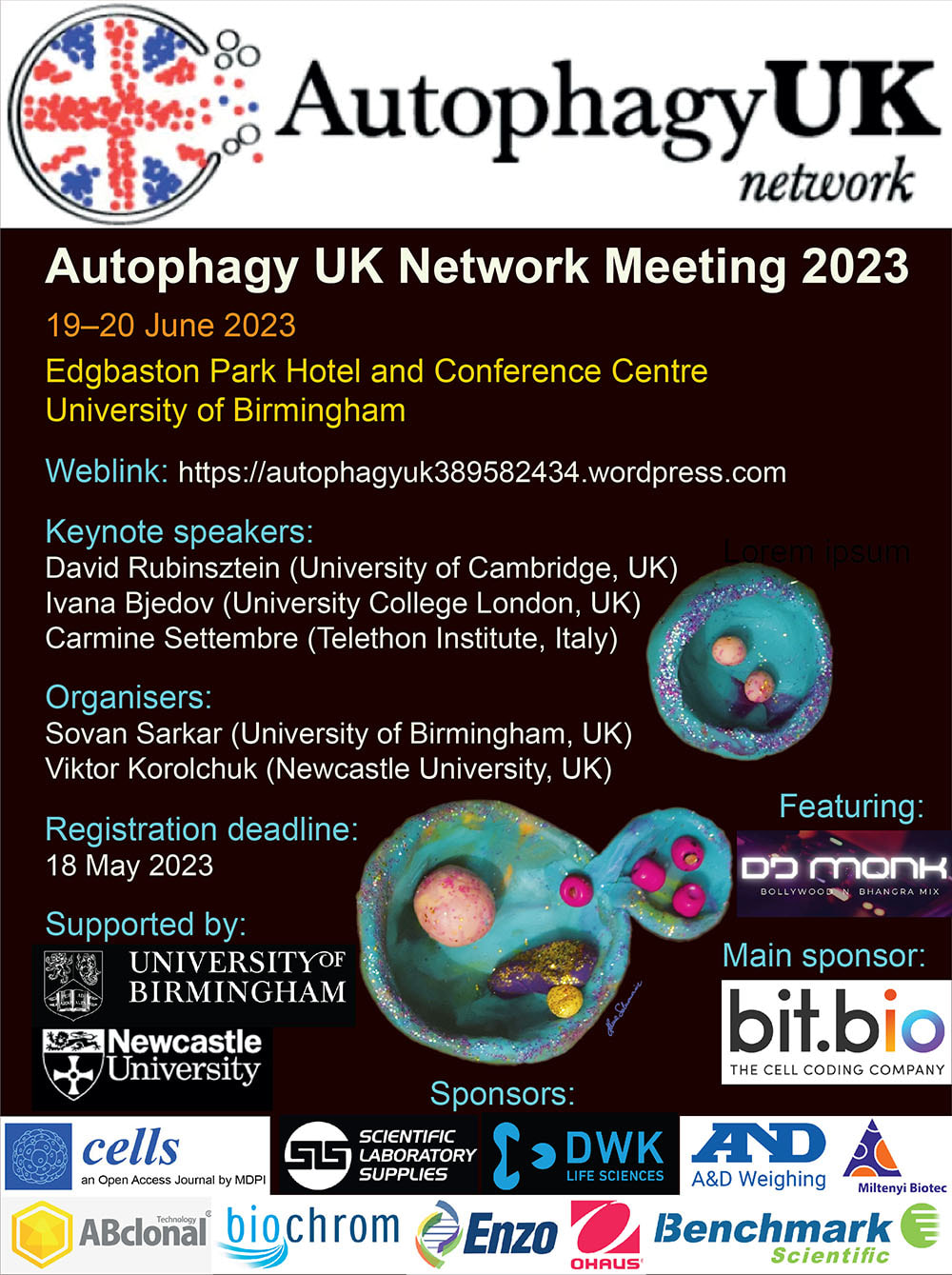Research Focus
|
Latest News
|
|
The focus of our lab is a biological process called autophagy, which has emerged as an important field of research in recent years with implications in myriad human physiological and pathological conditions such as development, infection and immunity, cancer, ageing and longevity, and neurodegeneration. Autophagy is a degradation pathway in cells for the removal of toxic cellular materials such as unwanted macromolecules and damaged organelles. This process is required for maintaining cellular homeostasis that is essential for cell survival and organismal health. Deregulation of this vital homeostatic process leads to cell death that contributes to the disease pathology including neurodegeneration. In order to restore functional autophagy in these conditions, therapeutic modulation of autophagy have been shown to exert beneficial effects in several transgenic disease models. Therefore, small molecule autophagy modulators have tremendous biomedical relevance.
Our lab is harnessing the power of human pluripotent stem cells to establish physiological and disease-relevant human cellular platforms for understanding the role and regulation of autophagy in the human system and its deregulation in diseases. We are utilizing human embryonic stem cells and disease-specific human induced pluripotent stem cells to differentiate into relevant cell-types such as neurons and macrophages for studying autophagy. We aim to develop a pipeline originating from basic science to drug discovery in a manner relevant for human biology, and potentially translate the findings for biomedical applications. |
Autophagy UK Network Meeting will be held at Edgbaston Park Hotel and Conference Centre in the University of Birmingham during 19-20 June 2023.
Latest Publications
Sun C. et al. NAD depletion mediates cytotoxicity in human neurons with autophagy deficiency. Cell Reports 42(5): 112372 (2023).
Kataura T. et al. Autophagy promotes cell survival by maintaining NAD levels. Developmental Cell 57(22): 2584-2598 (2022).
|



